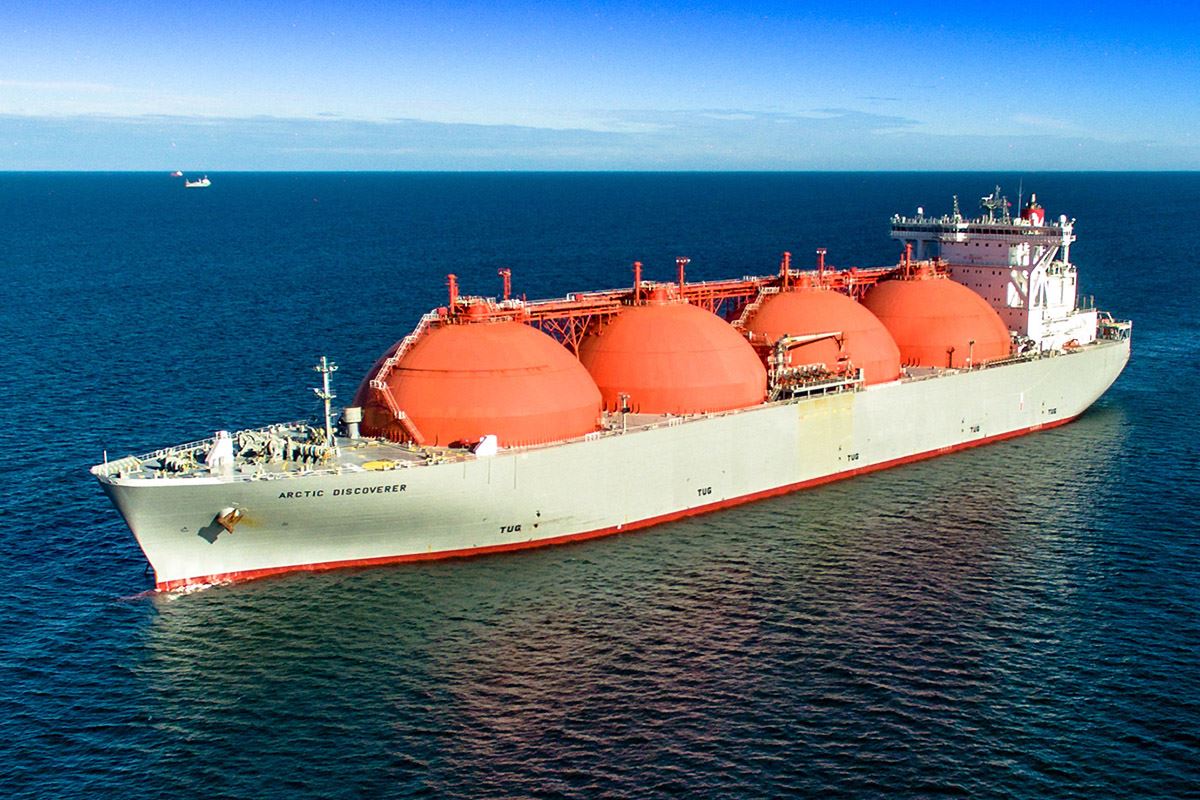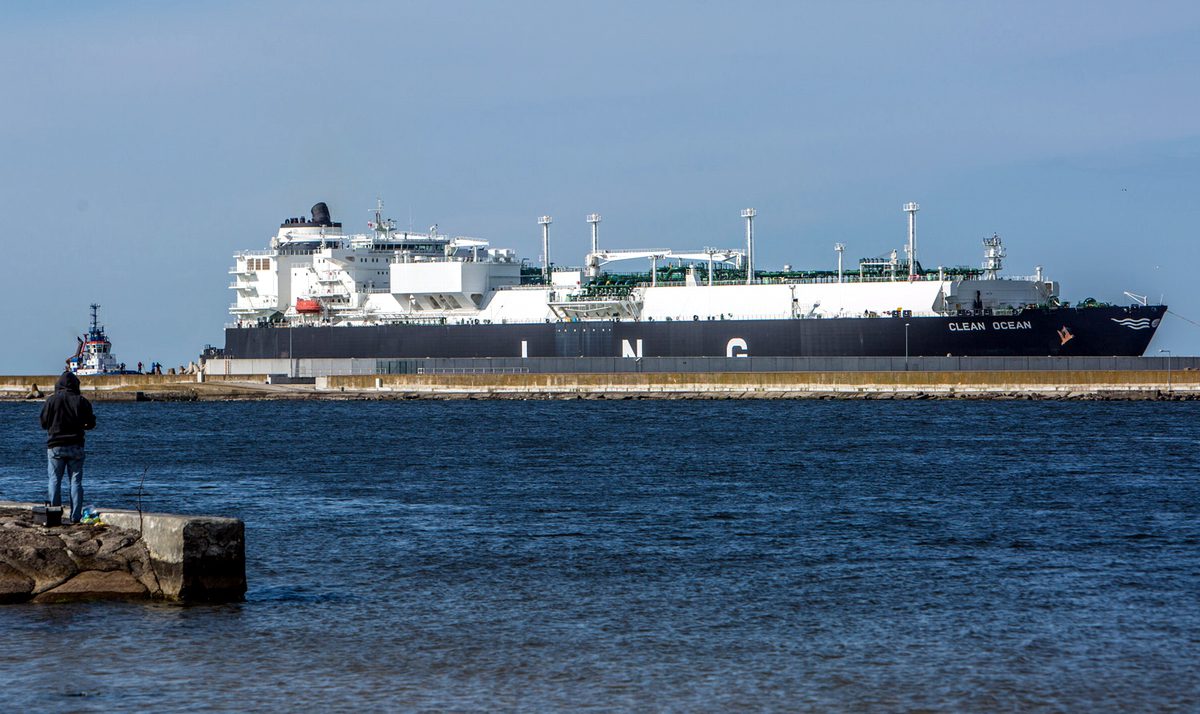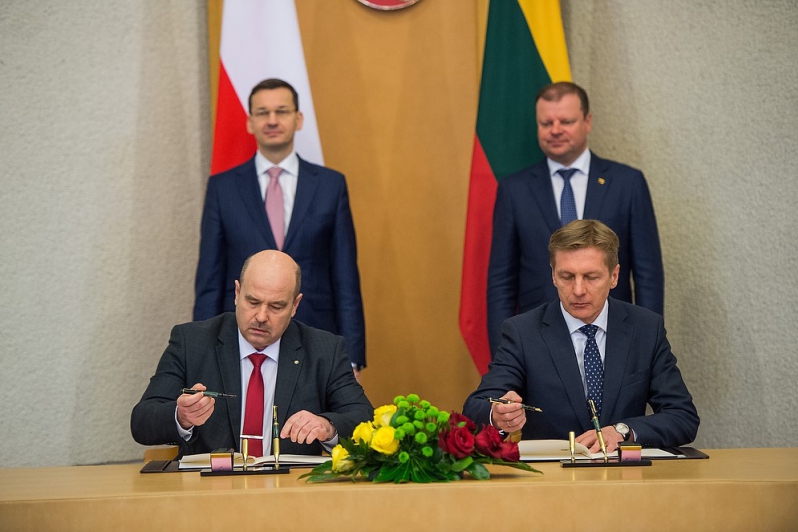PGNiG enters small scale LNG market in Lithuania
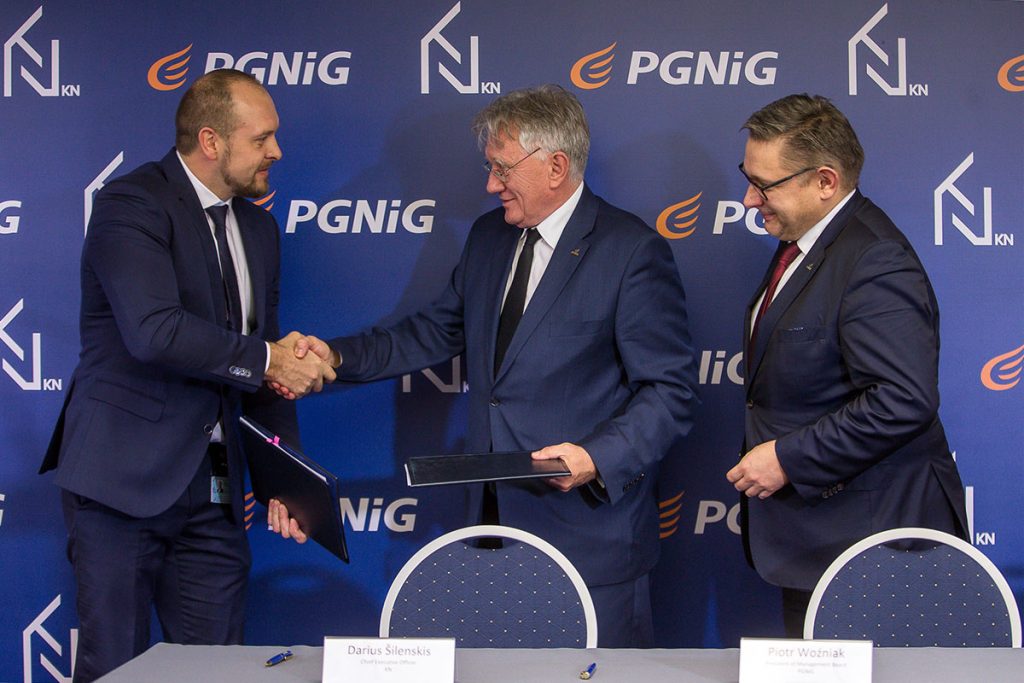
For five years, Polish Oil and Gas Company (PGNiG) will be the sole user of the small-scale LNG reloading station in Klaipeda. For PGNiG, this is an important step in building competence and position on this market in Central and Eastern Europe and the Baltic Sea basin. The contract with Klaipedos Nafta (KN) was signed on November 29, 2019, in Klaipeda and actual operations will start from April 2020. KN is the operator of oil terminals and FSRU terminal, i.e. a floating LNG storage and regasification terminal in Klaipeda as well as an operator of a small-scale LNG reloading station. This installation is located at the entrance to the port of Klaipeda (about 7 km from the FSRU). PGNiG’s offer was considered the most advantageous in the tender.
Klaipedos Nafta called a capacity reservation tender for the small-scale LNG distribution station to find a strategic partner for the development of this market in the Baltic region, including Poland, after seeing interest in the LNG station.
Five companies have had expressed their interest in trading LNG via a small-scale LNG distribution station operated by Klaipedos Nafta, the operator of the LNG terminal in Lithuania, and develop this market before PGNiG was chosen the preferred bidder. A five-year contract was signed with the company that offered the best price.
“Upon reaching an agreement, we will be able to focus on the activity of an infrastructure operator, ensure a permanent revenue flow and cover the capital and operation costs of this infrastructure. Meanwhile, the strategic partner will be responsible for LNG sales and market development,” the Lithuanian company said in. Klaipedos Nafta underlines that it is an LNG terminal operator, therefore, LNG sales and market development is not its key activity.
“Klaipedos Nafta appreciated our experience in operations and sales of small-scale LNG from the President Lech Kaczyński Terminal in Świnoujście and from our LNG facilities in Odolanów and Grodzisk Wielkopolski,” commented Piotr Woźniak, President of the PGNiG Management Board. “PGNiG will also gain better access to the small-scale LNG market in the Baltic countries and increase the competitiveness of its offer for customers from the area of north-eastern Poland and Central and Eastern Europe due to the use of the onshore LNG reloading station in Lithuania. It is very important from the point of view of security of supply that PGNiG will independently decide from whom to buy and bring LNG to the onshore reloading station in Lithuania,” added the President of PGNiG.
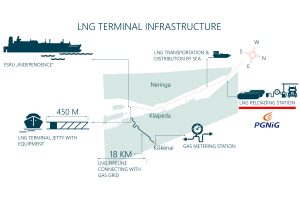
LNG deliveries to the coastal station will be possible with small vessels with a tank capacity some 30 times smaller than in the case of conventional deep-sea methane carriers. The onshore LNG reloading station is equipped with five LNG tanks with a total capacity of 5000 cubic meters (2250 tons) of LNG. It has two loading bays for LNG road tankers or ISO-containers that can be used simultaneously.
The maximum loading rate is 100 cubic meters (45 tons) of LNG per hour, which means that the process of loading one LNG tanker truck takes about 30 minutes.
The station also has a wharf adapted to receive and load LNG onto small scale vessels. The transhipment rate is 1250 cubic meters (562.5 tons) of LNG per hour. The bunkering speed of ships is 250-500 cubic meters (112.5-225 tons) of LNG per hour.
The wharf of the Klaipeda LNG reloading station also makes it possible to bunker ships powered by natural gas fueled engines (gas fuel is stored as LNG onboard). Due to environmental regulations, the demand for LNG from ship-owners operating in the Baltic Sea will grow dynamically in the coming years.
“Having a strategic partner will bring a great synergy enabling the LNG reloading station operated by KN. Development of small-scale and off-grid LNG markets in Baltic countries and Poland brings various new opportunities to make supplies of cleaner energy for businesses across the region more accessible. It will also provide more possibilities to diversify the supply for the industrial objects and settlements remoted from the pipeline, as well as for road and maritime transport,” said Darius Šilenskis, CEO of KN.
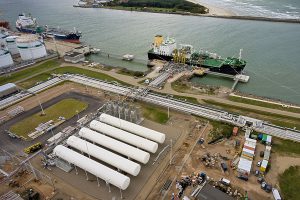
The competences and commercial relations acquired by the PGNiG Group in Klaipeda will allow smooth commencement of bunkering operations and transactions at the Świnoujście terminal after its expansion and launch of the wharf enabling the provision of this service in 2023. For now, the PGNiG Group is bunkering ships from road tankers on the quays in ports (the so-called truck-to-ship method).
On 27 October 2017, KN (AB Klaipėdos Nafta) marked the symbolic opening of its small-scale onshore liquefied natural gas (LNG) reloading station. The LNG reloading station consists of five 1000 m³ tanks for the storage of LNG, the cleanest fossil fuel used for maritime operations, road transport, cryogenic applications, and supply to the remote consumers. The technical design of the station provides for a possibility to increase the station’s capacity up to 10 thousand cubic meters. The station may simultaneously accommodate two LNG trucks and one small-scale LNG gas carrier.
rel (PGNiG)

